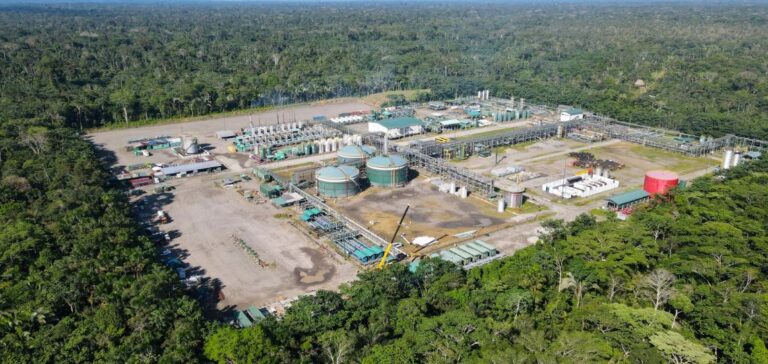On March 4, 2025, the Ecuadorian government announced the awarding of the Sacha oil field concession to a Sino-Canadian consortium. Composed of subsidiaries of the Chinese group Sinopec and the Canadian group New Stratus Energy, this partnership will take over from Petroecuador, the country’s state-owned oil company. Sacha, located in the Orellana province in the east of Ecuador, is the largest oil field in the country and has been producing oil for over fifty years.
The concession agreement, which is set to be signed in April, will last for 20 years. It plans for a gradual increase in production, aiming to reach 100,000 barrels per day within three years. In 2024, production was about 76,000 barrels per day. Ecuador’s Minister of Energy, Inés Manzano, acknowledged that Sacha’s infrastructure was in poor condition. She compared the site to “a rusted crown” whose “gems need polishing.”
The agreement also stipulates that the Ecuadorian state will receive an advance of $1.5 billion upon signing the contract, as well as royalties based on the evolution of crude oil prices. The project has sparked mixed reactions, notably from the Confederation of Indigenous Nationalities of Ecuador (Conaie), which condemned the deal. The organization accuses President Daniel Noboa, who is seeking a second term, of looking for resources for electoral purposes. Conaie has called the initiative “looting,” claiming that the country will be left with “crumbs of its own oil.”
Political and social reactions
The awarding of the Sacha concession to a foreign consortium has raised concerns among the population and social organizations. The main criticism revolves around the limited impact this contract could have on Ecuador’s benefits. Conaie has also highlighted tensions between the state and indigenous communities, who believe that oil extraction harms their territorial rights and the environment. The deal has also raised questions about how the profits will be distributed and the long-term impact of this partnership with international actors in a sector that is crucial to the national economy.
A changing oil sector
Ecuador, which relies heavily on oil exports, faces a series of challenges in its energy sector, with aging infrastructure and declining yields from its oil fields. The involvement of Sinopec and New Stratus Energy in the Sacha project represents an attempt to revitalize a key sector while securing immediate revenues through the $1.5 billion advance. However, the long-term viability of this model remains a topic of debate, particularly regarding the production and profitability conditions.






















